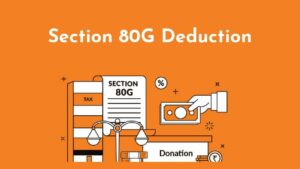Tax Benefit On Life Insurance – Life insurance did come as a obligation ever since we start work and support for our family. Most of us purchase a specific life insurance based on recommendations from the colleagues or via own research. Not so long ago, life insurance ‘LIC’ and LIC was purchased because it comes with tax benefits i.e 80C tax deductions.

But as time passed by, 80C deductions intended for more than just plain insurance and included PPF, FDR, principal of home loans, ELSS, EPF, and several of this stuff. Insurance has now taken to define insurance, and 80C is a side benefit. Purchasing life insurance is becoming a requirement in such moments and therefore we should be aware of its tax advantages from purchasing to making its proceeds come true. This blog seeks to shed light on key tax elements of life insurance policies.
Hire an Income Tax Consultant to get proper tax benefit advice
What is the tax benefit on life insurance policy?
If users purchase life insurance and pay the premium in a specific accounting year, users are qualified to receive the sum of the premium as a deduction from their gross total income (GTI). This manner, their taxable income will be deducted from the amount of the premium asserted as a deduction and you will be paying less tax.
This deduction is accessible in relation to a premium paid by the user in regard to life insurance on behalf of you, your wife or indeed any or even all of your children. In this case, with the exception of school fees, there really is no restriction advantage for only 2 kids.
In addition, children may be minors or adults. This deduction could also be asserted by the HUF in reference to a premium upon this life insurance policy of all its participants.
Limits On The Deductions
The highest deduction that can be attempted to claim on this is no more than 1,50,000/-or the number of your premium whatever is smaller. For example, if you have paid a premium of 60,000/-you can claim a tax deduction of the very same sum (given that the total 80C deductions do not exceed 1,50,000). Even so, if users paid a premium of 1,70,000/-, you can deduct the amount of only 1,50,000/-.
Furthermore, the premium for this deduction could not, in either event, surpass 10% of the amount covered by that policy. For example, if the amount insured is equal to 10.000.000/-and you paid a premium equal to 1.20.000/-the premium that is eligible for deduction is equal to 1.000.000/-and not equal to 1.20.000/-.
This threshold of 10% of the amount convinced is enhanced to 15% of the amount convinced in the situation of individuals with disabilities.
The amount insured for this reason describes the real amount insured and, in the event that you change the demand insured during the life of the policy, the minimum amount insured shall be taken into account for this advantage. In addition, this does not provide any premium amounts paid or bonuses obtained under the policy.
When the premium must be paid?
The premium is expected to be paid during the FY from 1 April of the current year to 31 March of the following year. Insurance providers permit a few more days for payment of a premium just after end of the FY, but if you pay the money just after end of the fiscal year, you could not assert the exemption for both the financial year in which users paid the premium. In such a case, this same deduction is accessible in the next financial year in which premium is payed by the person.



